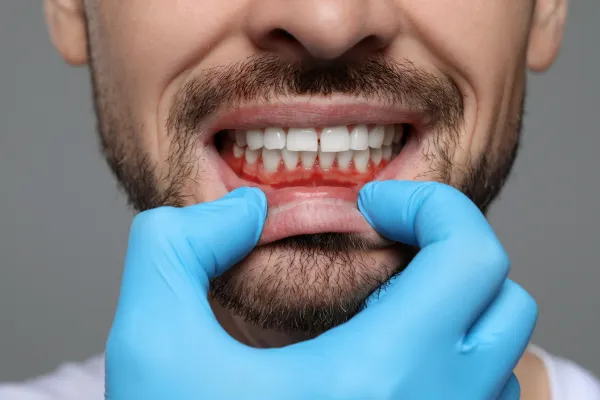
What is Gum Recession?
When most people think about dental health, they think about cavities or whitening their teeth—but your gums play a vital role in your overall oral health, too. One of the most common (and often unnoticed) issues we see in patients of all ages at Aaron Birch Family Dental is gum recession.
Gum recession occurs when the gum tissue surrounding your teeth begins to pull back or wear away, exposing more of the tooth—or even its root. This can lead to increased sensitivity, a higher risk of decay, and long-term damage if not treated early.
Let’s break down what causes gum recession, how to spot it, and what you can do to protect your smile.
What Causes Gum Recession?
There are a few key reasons why gums may begin to recede:
Aggressive Brushing
Brushing your teeth too hard or using a hard-bristled toothbrush can damage gum tissue over time.Gum Disease (Periodontal Disease)
One of the most common causes of recession, gum disease is an infection that damages both gum tissue and the bone supporting your teeth.Poor Oral Hygiene
Inadequate brushing or flossing allows plaque and tartar to build up, which can lead to gum inflammation and eventual recession.Genetics
Some people are more prone to gum recession due to their genetics—even with good oral care.Grinding or Clenching Teeth (Bruxism)
The excessive pressure from clenching or grinding can cause gums to recede over time.Crooked Teeth or Misaligned Bite
When teeth don’t come together evenly, too much force can be placed on the gums, leading to recession.Tobacco Use
Smoking or chewing tobacco can increase plaque buildup and cause gums to recede.
Symptoms of Gum Recession
Gum recession often happens gradually, which means many people don’t notice it until the damage is more severe. Here are a few signs to watch for:
Tooth sensitivity (especially to cold or sweet foods)
Teeth appearing longer than usual
Notching at the gum line
Red, swollen, or bleeding gums
Loose teeth in advanced cases
If you’re experiencing any of these symptoms, we encourage you to contact our Grand Junction office for a check-up.
Why Gum Recession Is a Big Deal
Left untreated, gum recession can lead to:
Increased risk of cavities on the exposed root
Tooth sensitivity that affects daily comfort
Bone loss around the teeth
Loose teeth or even tooth loss in severe cases
Aesthetic concerns (a “long-tooth” smile)
The good news? There are solutions.
What Can You Do About Gum Recession?
At Aaron Birch Family Dental, we take gum health seriously and offer several options depending on the severity of the issue:
Improved Oral Care Habits
Switching to a soft-bristled toothbrush and using proper brushing technique can stop recession from worsening.Scaling and Root Planing
A deep cleaning treatment that removes plaque and tartar below the gum line to help gums heal and reattach.Gum Grafting (in severe cases)
This procedure replaces lost gum tissue using tissue from another part of your mouth or a donor source.Mouthguards for Bruxism
Custom nightguards can help protect your teeth and gums if you grind or clench at night.Ongoing Monitoring
Regular dental visits allow us to monitor your gum health and catch recession early.
Let’s Keep Your Gums Healthy Together
Gum recession may be common, but it doesn’t have to be a permanent problem. With early detection and the right care, we can help protect your teeth and restore your smile.
At Aaron Birch Family Dental in Grand Junction, we provide compassionate, thorough care for the whole family—and we’re always here to answer your questions.
📞 Call us today to schedule a check-up or gum health evaluation.
Let’s keep your smile strong—from the gums up!


Facebook
Instagram